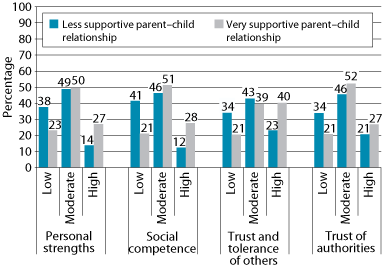Oklahoma State University, used the domain-specific risk-taking scale (DOSPERT) to assess five areas of risk-taking, namely ethical, social, financial, recreational and health.
The research tested the hypothesis that childhood relationships with parents were related to risk-taking by young adults. Prior research has shown that risk-taking by young children is related to their interactions with mothers and fathers.
What makes some young adults behave in ways that have the potential to harm themselves or those around them? Many studies have examined the complex psychology of financial risk-taking, but new research suggests that financial risk-taking in young adults, including going into debt or breaking the law, could be rooted in their childhood relationships with parents.

Few studies have examined how family relationships during childhood are related to risk-taking by young adults. Assessment was based on risk-taking using the domain-specific risk-taking scale (DOSPERT), which measures five domains of risk-taking: ethical, financial, health, recreational, and social. We also assessed sensation-seeking, a personality trait that has been shown to be a predictor of risk-taking and family dynamics, using a measure that quantifies positive and negative childhood relationships with each parent.
The three key results were (1) negative mother interactions predicted men’s financial risk-taking; (2) negative father interactions and disinhibition predicted men’s ethical risk-taking; and (3) women’s ethical risk-taking was predicted by negative father interactions, low positive mother interactions, and boredom susceptibility.
